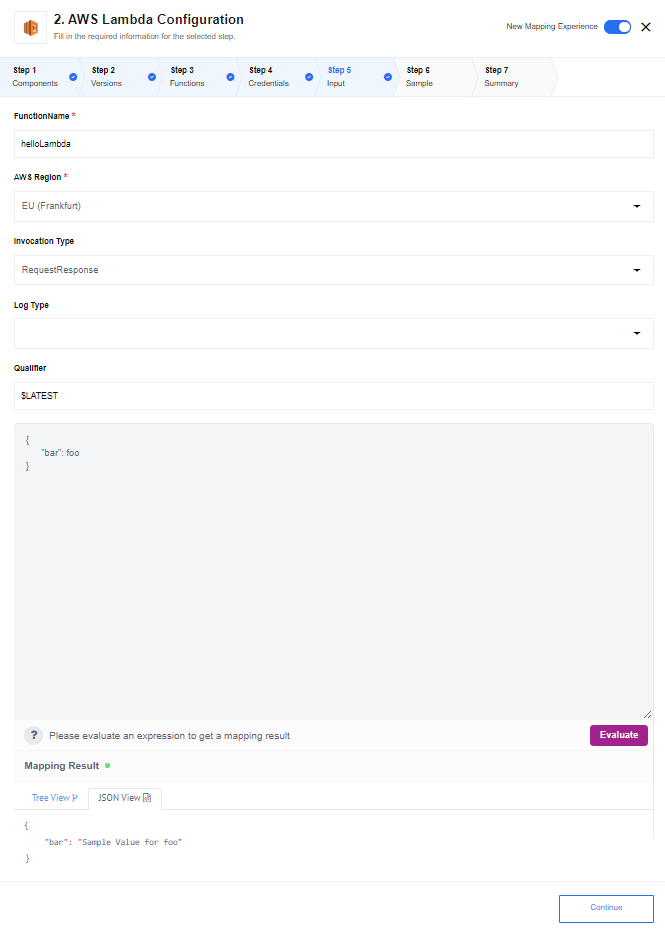AWS Lambda component
Requirements
Environment variables
None required.
Credentials
The component requires the following credentials to authenticate with the AWS services:
AWS Access Key- this is your Access Key ID when you created the AWS accountAWS Access Secret- this is your Secret access key given to you during the key creation
These keys are displayed only once, just after the creation of the credentials in AWS. To generate new ones follow the instructions given at Getting Your Credentials page.
Technical Notes
The technical notes page gives some technical details about AWS-Lambda component like changelog.
Triggers
This component has no trigger functions. This means it will not be accessible to select as a first component during the integration flow design.
Actions
Invoke a lambda function
This action will invoke a AWS Lambda function. It has following configuration parameters:

Please refer to the AWS Lambda documentation for more information about the parameters.
Incoming JSON can be adjusted using the JSONata Expression field. Please make sure result of evaluation is a valid JSON.
Action supports returning JSON value as result.
If invocation was successful then action tries to parse resulting payload
as JSON and if parsing was successful then action emits a new message
with the resulting JSON as body.
If JSON parsing of the payload after successful invocation fails then action emits the
message with body equal to AWS.Response, like this:
{
"StatusCode": 200,
"Payload": "result from the lambda invocation"
}
If LogType was set to Tail then the last 4 KB of the log will be returned
with the response and will be logged out to component log standard output (and
visible in the platform log)
Known issues
- Invocation Type
DryRunis not supported - make no sense in the context
Click here to learn more about the elastic.io iPaaS